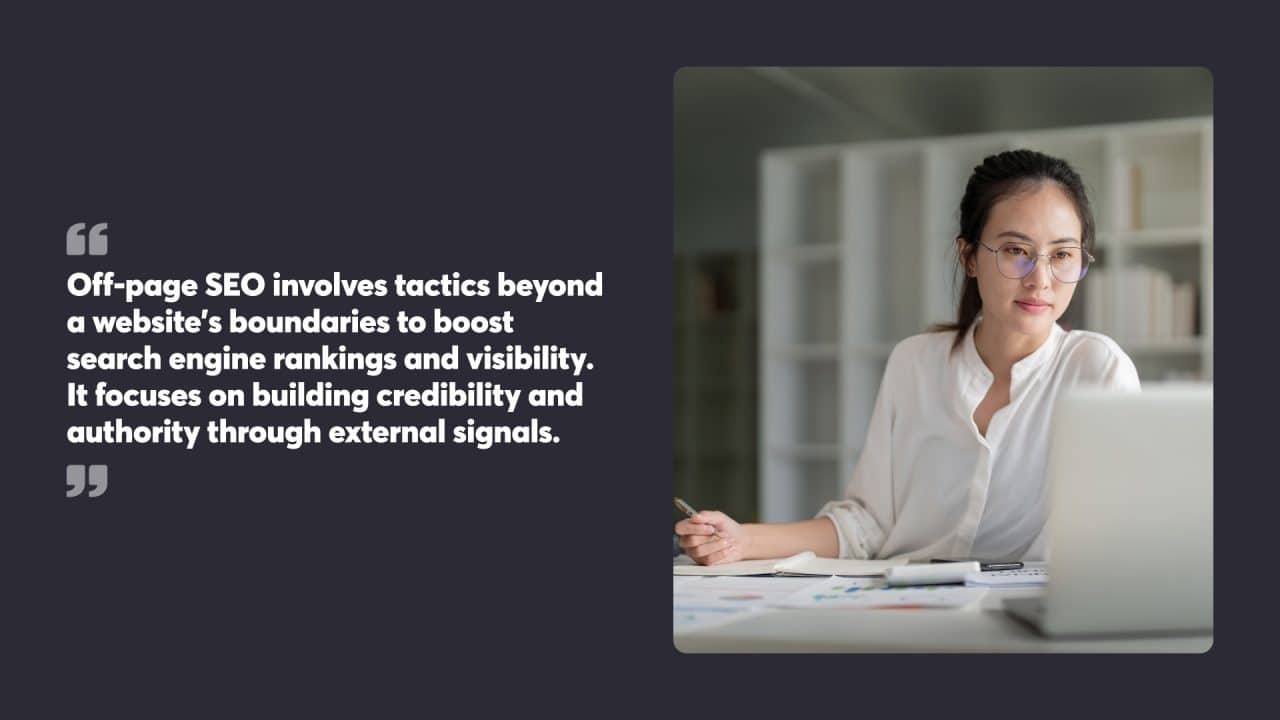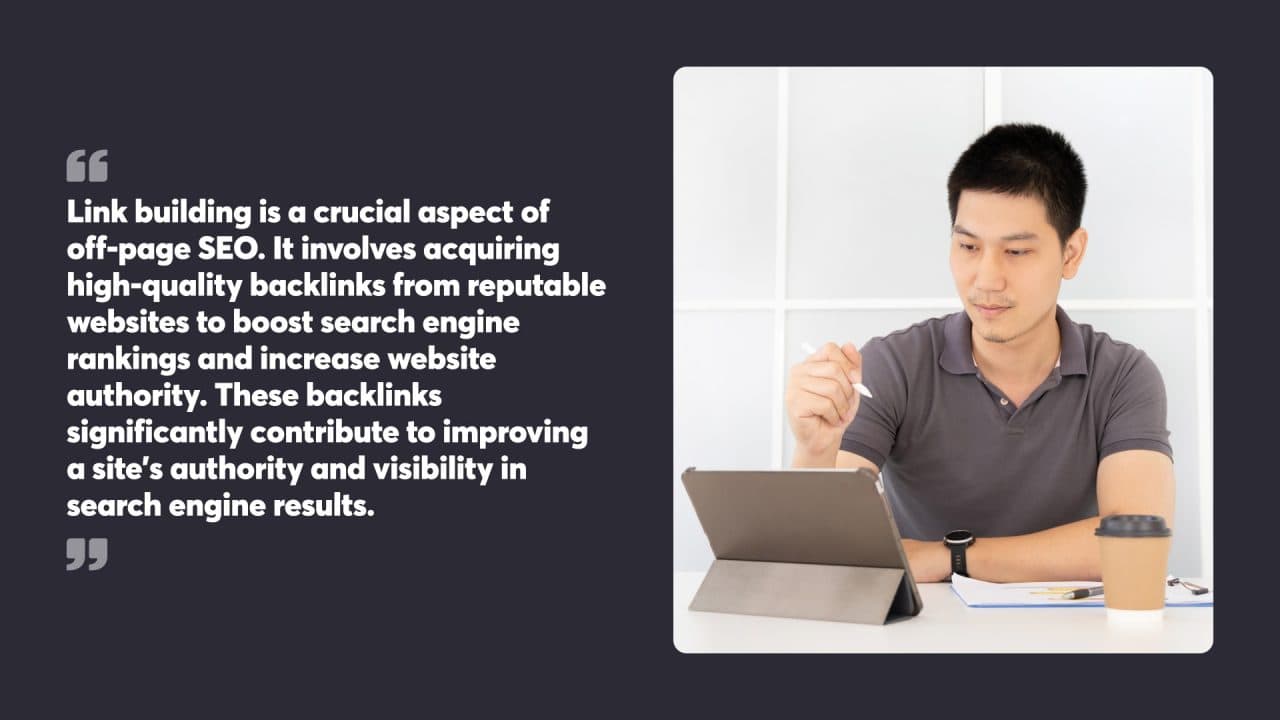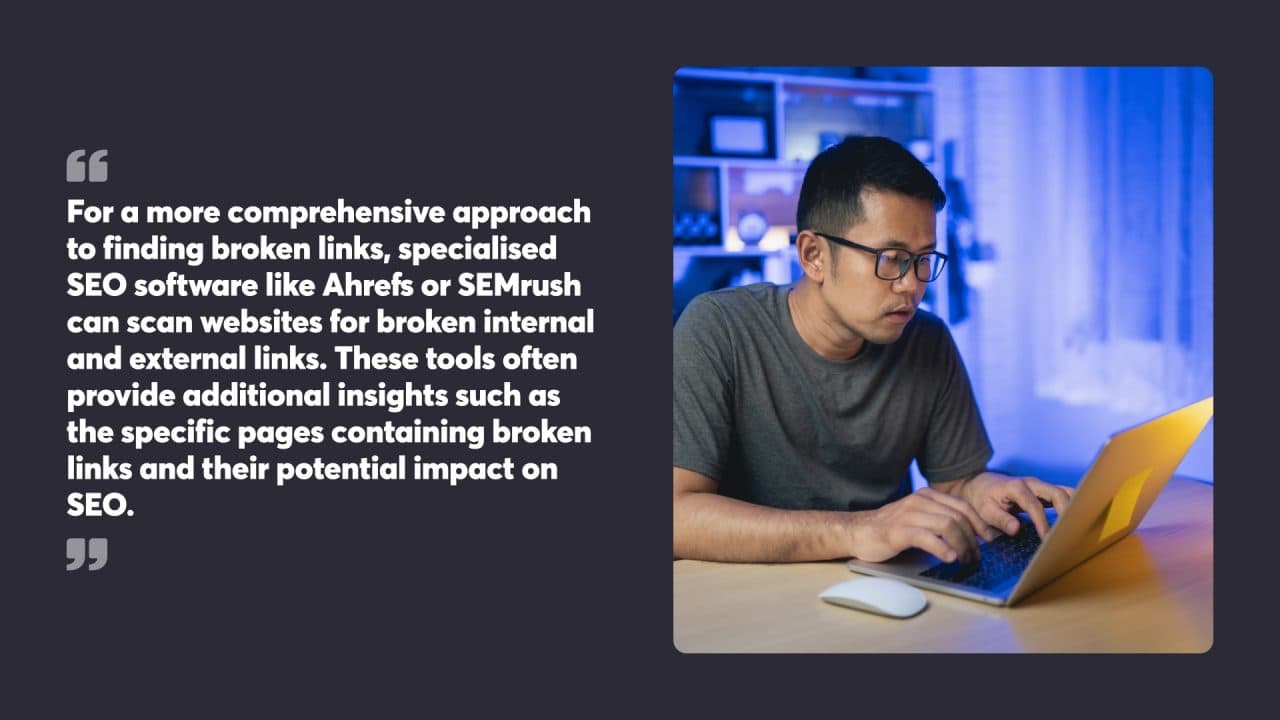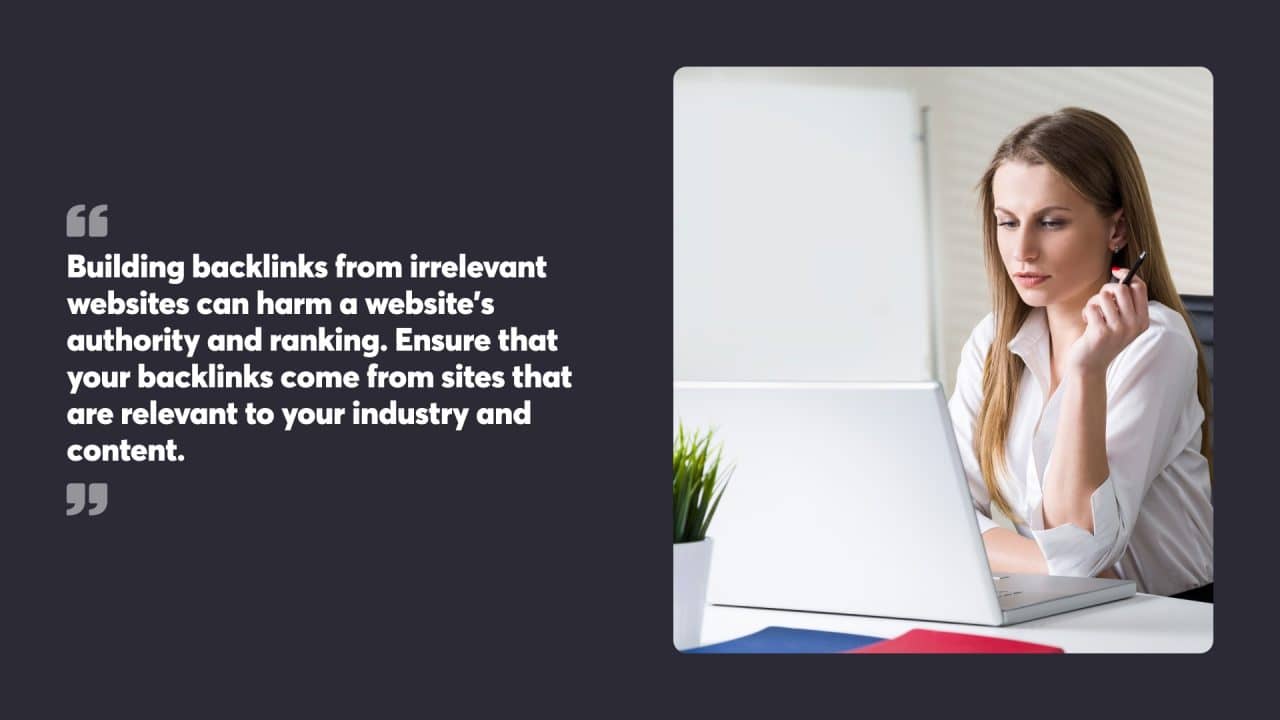
Off-page SEO plays a crucial role in boosting a website’s visibility and authority in search engine rankings. While on-page SEO focuses on optimising elements within a site, off-page SEO involves activities conducted outside the website to improve its standing.
Building high-quality backlinks from reputable sources is a cornerstone of effective off-page SEO, as it signals to search engines that a site is trustworthy and valuable.
Link building strategies encompass a range of techniques, from creating shareable content to engaging in guest blogging and participating in industry forums. These methods aim to attract natural links from other websites, which act as votes of confidence in the eyes of search engines. Additionally, off-page SEO involves cultivating a strong social media presence and encouraging positive user engagement, which can indirectly impact search rankings.
Key Takeaways
- Off-page SEO focuses on building website authority and credibility through high-quality backlinks from reputable sources. Effective strategies include creating link-worthy content, guest blogging, and leveraging influencer partnerships to attract natural links and boost search rankings.
- Engaging on social media platforms and encouraging brand mentions can significantly improve off-page SEO. By consistently sharing valuable content and interacting with followers, businesses can increase visibility, drive referral traffic, and build trust among their target audience.
- Regularly monitoring off-page SEO progress using tools like Google Analytics and backlink trackers is crucial for measuring the success of link-building efforts.

Table of Contents
Understanding Off-Page SEO
Off-page SEO involves tactics beyond a website’s boundaries to boost search engine rankings and visibility. It focuses on building credibility and authority through external signals.
Tracking increases in organic traffic is a key indicator of off-page SEO performance, particularly after implementing strategies like gaining backlinks and engaging in public relations efforts.
The Essence of Off-Page SEO
Off-page SEO refers to actions taken outside of a website to improve its search engine rankings. These efforts aim to increase a site’s authority and trustworthiness in the eyes of search engines. Key components include building high-quality backlinks, social media engagement, and brand mentions across the web.
Backlinks from reputable sources act as votes of confidence for a website. They signal to search engines that others find the content valuable and worthy of reference. Social signals, such as shares and likes, can also contribute to a site’s perceived value and relevance.
Contrasting On-Page and Off-Page SEO
Unlike on-page SEO, which concentrates on optimising elements within a website, off-page SEO deals with external factors. On-page tactics involve tweaking content, meta tags, and site structure. Off-page strategies, in contrast, focus on building a site’s reputation across the internet.
On-page SEO gives website owners direct control over optimisation efforts. Off-page SEO, however, often relies on influencing others to link to or mention the site. This makes off-page SEO more challenging to control but potentially more powerful in building long-term authority.
Both on-page and off-page SEO are essential for a comprehensive search engine optimisation strategy. They work together to improve a website’s visibility and rankings in search results.
Key Components of Off-Page SEO
Off-page SEO is a multifaceted strategy that involves several key components to enhance a website’s authority and ranking. These components include:
- Link Building: The process of acquiring high-quality backlinks from other websites to increase a website’s authority and ranking. High-quality backlinks act as endorsements, signalling to search engines that your content is valuable and trustworthy.
- Social Signals: Engagement on social media platforms can indirectly influence a website’s SEO by increasing its visibility and driving traffic. Shares, likes, and comments can amplify your content’s reach, leading to more natural backlinks.
- Brand Mentions: References to a brand, even without a direct link, can signal relevance and authority to search engines. These mentions can occur in blog posts, news articles, or social media discussions, contributing to your site’s credibility.
- Guest Posting: Writing articles on other websites with a link back to your own website helps build relationships and earn backlinks. Guest posts allow you to reach new audiences and establish your expertise in your industry.
- Influencer Outreach: Collaborating with influencers in your niche can gain credibility and reach a wider audience. Influencers can share your content with their followers, leading to increased visibility and potential backlinks.

The Importance of Building Authority
Building authority is a critical aspect of off-page SEO that significantly impacts search rankings and online presence. It involves strategies to enhance a website’s credibility and influence in its niche.
Establishing Domain Authority
Domain authority measures a website’s relevance and trustworthiness within its industry. Search engines use this metric to determine how high a site should rank in search results. Identifying relevant websites that share similar content and industry focus is crucial for building domain authority. Websites with strong domain authority often secure top positions for relevant keywords.
To boost domain authority, focus on creating high-quality content that attracts natural backlinks from reputable sources. Guest posting on respected industry blogs and participating in expert roundups can also help. These activities show search engines that other trusted websites value your content.
Consistency is key. Regularly publishing valuable content and engaging with your audience builds authority over time. It’s a gradual process that requires patience, persistence, and consistency.
Reputation and Online Visibility
A solid online reputation goes hand-in-hand with building authority. It influences how users perceive your brand and affects their likelihood of engaging with your content or services.
Positive reviews, testimonials, and social media mentions contribute to a strong reputation. Actively manage your brand’s presence across various platforms. Respond to customer feedback promptly and professionally to show that you value your audience.
Increased visibility is a natural outcome of building authority. As your website gains recognition, it’s more likely to appear in search results, social media discussions, and industry publications. This expanded reach can lead to more traffic, links, and opportunities for growth.

Comprehensive Link Building Strategies
Link building is a crucial aspect of off-page SEO. It involves acquiring high-quality backlinks from reputable websites to boost search engine rankings and increase website authority. These backlinks significantly contribute to improving a site’s authority and visibility in search engine results.
Effective Link Building Techniques
Creating valuable content is the foundation of successful link-building. Websites are more likely to link to informative articles, research papers, or unique resources. Guest blogging on relevant sites can also generate quality backlinks. Reaching out to industry influencers and building relationships can lead to natural link opportunities.
Another effective strategy is broken link building. This involves finding broken links on other websites and suggesting your content as a replacement. Participating in online forums and communities related to your niche can also help build authoritative links. Backlinks are viewed by other search engines, including Google, Bing, and others, as votes of credibility, which can improve your search visibility across multiple search platforms.
Ensuring Quality Backlinks
Not all backlinks are created equal. Focus on acquiring links from websites with high domain authority and relevance to your industry. Avoid low-quality or spammy websites, as these can harm your SEO efforts.
Diversify your link profile by obtaining links from various sources. This includes different types of websites, such as news outlets, educational institutions, and industry-specific platforms. Aim for a mix of dofollow and nofollow links to maintain a natural-looking backlink profile.
Regularly monitor your backlink profile using tools like Ahrefs or Moz. This allows you to identify and disavow any toxic links that may negatively impact your website’s authority.
Types of Backlinks
There are several types of backlinks that can impact a website’s off-page SEO, including:
- Natural Backlinks: These occur organically when other sites link to your content because they find it valuable. Natural backlinks are the most desirable as they indicate genuine interest and trust in your content.
- Manual Backlinks: Obtained through deliberate efforts, such as reaching out to other site owners or influencers. These backlinks require proactive outreach and relationship-building.
- Self-Created Backlinks: Created by manually adding links in forums, comment sections, or directories. While these can be useful, they should be used sparingly to avoid appearing spammy.
- High-Quality Backlinks: Links from authoritative, relevant, and trustworthy websites can significantly impact a website’s authority and ranking. These backlinks are often from industry leaders, educational institutions, or well-respected publications.
- Low-Quality Backlinks: Links from spammy, irrelevant, or untrustworthy websites can harm a website’s authority and ranking. It’s crucial to avoid these as they can lead to penalties from search engines.
Creating Content That Attracts Backlinks
Crafting high-quality content is essential for attracting backlinks and boosting off-page SEO. This involves producing valuable resources and leveraging social media to increase visibility.
Content Marketing Excellence
Creating content that naturally attracts backlinks requires a focus on quality and relevance. Articles, infographics, and videos should provide significant value to the target audience. Research-based content, original data, and expert insights are highly effective in garnering attention from other websites.
Case studies and industry reports often attract links from authoritative sources. How-to guides and comprehensive tutorials can become go-to resources, increasing the likelihood of backlinks. Regularly updating evergreen content keeps it relevant and link-worthy.
Incorporating visual elements like charts, graphs, and custom images can make content more shareable and link-worthy. Long-form content that thoroughly covers a topic typically attracts more backlinks than shorter pieces. High-quality content can significantly improve a website’s visibility and ranking on search engine results pages.
Coordinating with Social Media
Social media platforms play a crucial role in content distribution and backlink acquisition. Sharing content across various social channels increases its visibility and potential for attracting links.
Engaging with industry influencers and thought leaders on social media can lead to valuable backlink opportunities. Participating in relevant online communities and forums helps build relationships that may result in natural backlinks.
Creating content specifically for social media, such as infographics or short videos, can increase shares and potential backlinks. Using hashtags strategically can improve content discoverability and reach a wider audience.
Collaborating with other brands or influencers on social media campaigns can expose content to new audiences, increasing the chances of earning backlinks.

Leveraging Guest Blogging
Guest blogging is a powerful off-page SEO tactic for building authority and backlinks. It involves contributing content to other websites to gain exposure and improve search rankings.
Crafting Guest Posts
When creating guest posts, focus on producing high-quality, relevant content that adds value to the host site’s audience. Research the target blog’s style and topics to align your writing with their standards. Craft engaging headlines and include actionable tips or insights to capture readers’ attention. Incorporate relevant keywords naturally, but avoid overstuffing.
Use a clear structure with short paragraphs and subheadings for easy reading. Include links to authoritative sources and your own website where appropriate. Proofread carefully to eliminate errors and maintain professionalism.
Expanding Your Reach
To maximise the impact of guest blogging, identify high-authority websites in your niche that accept guest contributions. Use search engines and social media to find potential opportunities. Build relationships with blog owners and editors through genuine engagement before pitching ideas.
Diversify your guest posting efforts across different websites to reach varied audiences. Share your published guest posts on social media to amplify their reach. Track the performance of your guest posts using analytics tools to refine your strategy. Consider repurposing successful guest content for your own blog to extend its lifespan and value.
Utilising Social Media Marketing
Social media platforms offer powerful opportunities for off-page SEO. These channels can amplify brand visibility and drive targeted traffic to websites.
Enhancing Brand Mentions
Social media provides a fertile ground for increasing brand mentions. Companies can craft engaging posts that spark conversations and encourage shares. By consistently sharing valuable content, businesses build trust and recognition among their followers. This visibility can lead to organic mentions across various platforms.
Engaging with followers through comments and direct messages further strengthens brand presence. Responding promptly to queries and feedback shows attentiveness and builds positive associations. Collaborating with influencers in the industry can also boost brand mentions, as their followers may discuss and share content related to the partnership.
Increasing Referral Traffic
Social media platforms serve as effective conduits for driving referral traffic to websites. By sharing links to blog posts, product pages, or other valuable resources, businesses can entice users to visit their sites. Creating compelling headlines and eye-catching visuals for these shared links can improve click-through rates.
Utilising platform-specific features like Instagram Stories or Twitter polls can create interactive experiences that guide users to a website. Running targeted social media ads can also significantly boost referral traffic by reaching specific demographics or interests aligned with the business offerings.
Tracking referral traffic through analytics tools helps identify which platforms and content types generate the most visits. This data informs future social media strategies, allowing businesses to focus efforts on the most effective channels and content formats for driving quality traffic to their websites.

Techniques for Identifying and Fixing Broken Links
Broken links can harm a website’s SEO and user experience. Effective methods exist to detect and address these issues, as well as leverage them for link-building opportunities.
Broken Link Detection
For a more comprehensive approach to finding broken links, specialised SEO software like Ahrefs or SEMrush can scan websites for broken internal and external links. These tools often provide additional insights such as the specific pages containing broken links and their potential impact on SEO.
Regular link audits are vital for maintaining website health. Setting up automated checks or scheduling manual reviews can help catch broken links early before they affect site performance or user engagement.
Broken Link Utilisation
Broken link building is a strategy that turns link issues into opportunities. This technique involves finding broken links on other websites and suggesting replacement content from your own site.
To start, search for relevant broken links in your industry using tools like Check My Links or Ahrefs. Once identified, analyse the backlink profile of the dead page to assess its quality and relevance.
Next, create high-quality content that matches or improves upon the original broken link destination. Reach out to webmasters with a polite email explaining the broken link and offering your content as a replacement. This approach can lead to valuable backlinks while helping other sites improve their user experience.

Optimising for Local Search
Local search optimisation is crucial for businesses targeting specific geographical areas. It helps improve visibility in local search results and attracts nearby customers.
Utilising Google Business Profile
Google Business Profile is a powerful tool for local search optimisation. It allows businesses to manage their online presence across Google Search and Maps. To maximise its benefits, companies should claim and verify their profile, providing accurate and up-to-date information.
Key details to include are business name, address, phone number, website, and operating hours. Adding high-quality photos and videos can boost engagement and give potential customers a visual preview of the business.
Regularly posting updates, offers, and events keeps the profile fresh and engaging. Encouraging satisfied customers to leave reviews can significantly boost local search rankings. Responding to reviews, both positive and negative, shows active engagement and care for customer feedback.
Categories and attributes should be selected carefully to accurately represent the business. This helps Google understand the nature of the business and display it for relevant local searches.
Local Citations and Directories
Local citations and directories are essential for businesses with a physical location or a local target audience. These include:
- Google My Business: A free listing that allows businesses to manage their online presence and provide accurate information to customers. Optimising your Google My Business profile can improve your visibility in local search results and attract more local customers.
- Local Directories: Listings in local directories, such as Yelp or Bing Places, can increase a business’s visibility and credibility. These platforms often rank well in local search results, providing additional exposure.
- Industry-Specific Directories: Listings in directories specific to a business’s industry, such as Healthgrades for healthcare professionals, can enhance your authority and attract targeted traffic. These directories are often trusted sources of information within their respective industries.
Monitoring Off-Page SEO Progress
Tracking off-page SEO efforts is vital for gauging the effectiveness of link-building strategies and understanding their impact on search engine rankings. Regular monitoring provides insights into backlink quality and website authority.
Using Google Analytics
Google Analytics offers valuable data for assessing off-page SEO performance. By examining referral traffic, webmasters can identify which external sites drive visitors to their pages. This information helps pinpoint successful backlinks and partnerships.
To access referral data in Google Analytics:
- Navigate to the Acquisition section
- Select “All Traffic”
- Click on “Referrals”
The resulting report shows which sites send traffic, how many visitors they bring, and how those visitors behave on the site. High-quality referrals typically have lower bounce rates and longer session durations.
Google Analytics also allows tracking of social media traffic, another key component of off-page SEO. By analysing social channels that drive traffic, businesses can refine their social media strategies and focus on platforms that yield the best results.
Tracking Backlink Profiles
Monitoring a website’s backlink profile is essential for maintaining a healthy off-page SEO strategy. Several tools can help track backlinks:
- Ahrefs
- Moz Link Explorer
- SEMrush
These platforms provide detailed information about:
- Total number of backlinks
- Domain authority of linking sites
- Anchor text distribution
- New and lost links
Regularly checking backlink profiles helps identify toxic links that could harm search rankings. It also highlights opportunities for gaining links from high-authority domains in relevant niches.
By tracking both the quantity and quality of backlinks over time, webmasters can measure the success of their link-building campaigns and adjust their strategies as needed.

Avoiding Common Off-Page SEO Mistakes
Off-page SEO requires careful planning and execution to avoid common mistakes that can harm a website’s authority and ranking. These include:
- Buying Backlinks: Purchasing backlinks from other websites is against Google’s webmaster guidelines and can result in penalties. It’s essential to focus on earning backlinks organically through high-quality content and genuine relationships.
- Over-Optimising Anchor Text: Using the same anchor text repeatedly can trigger penalties from search engines. Diversify your anchor text to include a mix of branded, generic, and keyword-rich phrases.
- Ignoring Relevance: Building backlinks from irrelevant websites can harm a website’s authority and ranking. Ensure that your backlinks come from sites that are relevant to your industry and content.
- Neglecting Link Diversity: Failing to diversify a website’s backlink profile can appear unnatural to search engines. Aim for a mix of backlinks from various sources, including blogs, news sites, and industry-specific platforms.
Risks of Buying Backlinks
Buying backlinks is a risky practice that can result in severe penalties from search engines. These risks include:
- Penalties from Google: Google can penalise websites that engage in buying backlinks, resulting in a loss of ranking and visibility. These penalties can be difficult to recover from and can significantly impact your site’s traffic.
- Loss of Credibility: Buying backlinks can harm a website’s credibility and reputation, making it less trustworthy to users and search engines. Trust is a crucial factor in SEO, and losing it can have long-term consequences.
- Waste of Resources: Buying backlinks can be a waste of resources, as they may not provide any long-term benefits and can be removed at any time. Investing in organic link-building strategies is a more sustainable approach.
- Negative Impact on SEO: Buying backlinks can have a negative impact on a website’s SEO, leading to a decrease in ranking and visibility. It’s essential to focus on ethical practices that build long-term authority and trust.

Maximising Influencer and Content Outreach
Influencer marketing and content outreach are powerful strategies for building authority and attracting backlinks. These approaches leverage relationships with industry leaders and create valuable content to boost off-page SEO efforts.
Influencer Engagement
Identifying and connecting with relevant influencers is key to successful outreach. Start by researching influencers in your niche who align with your brand values and have engaged followers. Reach out with personalised messages that highlight the mutual benefits of collaboration.
Offer value to influencers through exclusive content, product samples, or access to events. This builds genuine relationships and increases the likelihood of them sharing your content or mentioning your brand.
Track influencer partnerships using specialised tools to measure reach, engagement, and conversions. Adjust your strategy based on these metrics to optimise future campaigns.
Collaborative Content Creation
Partner with influencers and other brands to create high-quality, shareable content. This might include co-authored blog posts, joint webinars, or collaborative research projects. Such partnerships expand your reach to new audiences and increase the chances of earning backlinks.
Develop a content calendar that aligns with influencer strengths and audience interests. This helps maintain consistency and maximises the impact of your collaborative efforts.
Consider guest posting on relevant sites to showcase your expertise and gain valuable backlinks. Ensure guest posts provide genuine value to the host site’s audience, increasing the likelihood of acceptance and engagement.
Need help building backlinks to your website? The team at Chillybin can help, contact us today.




